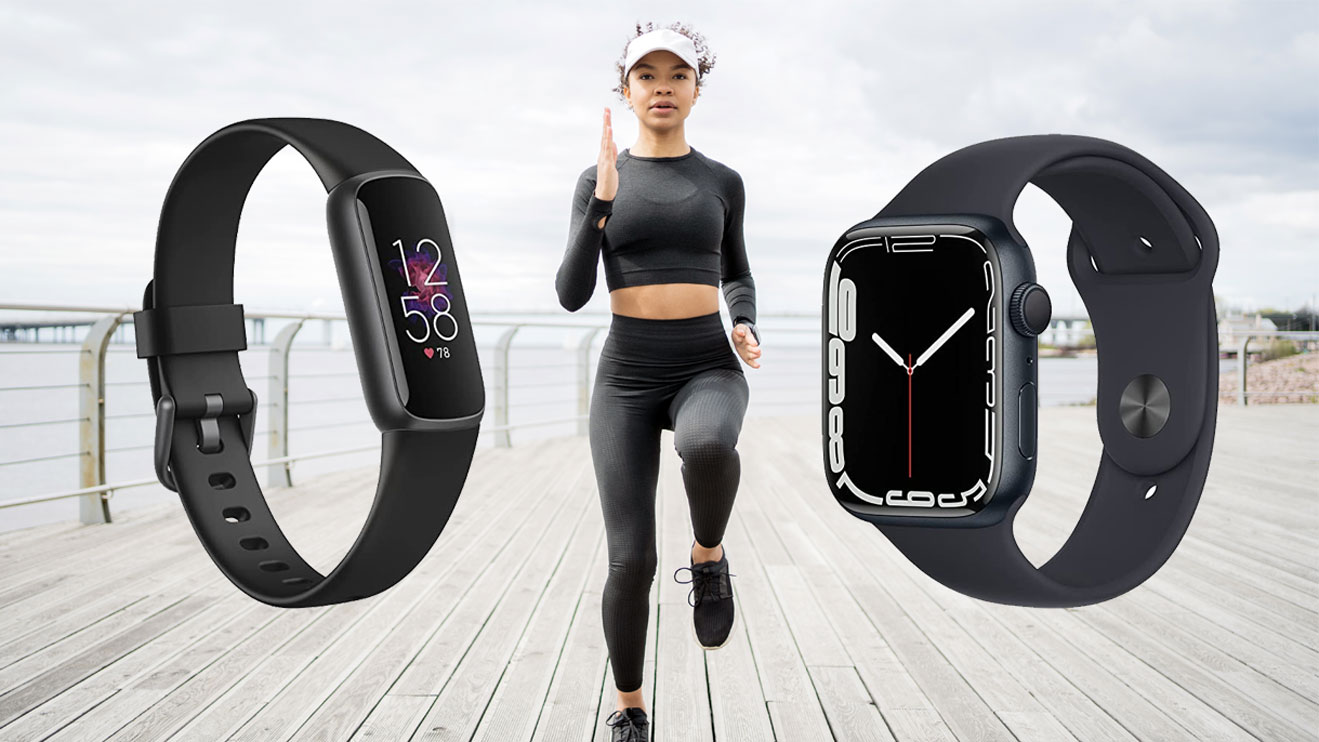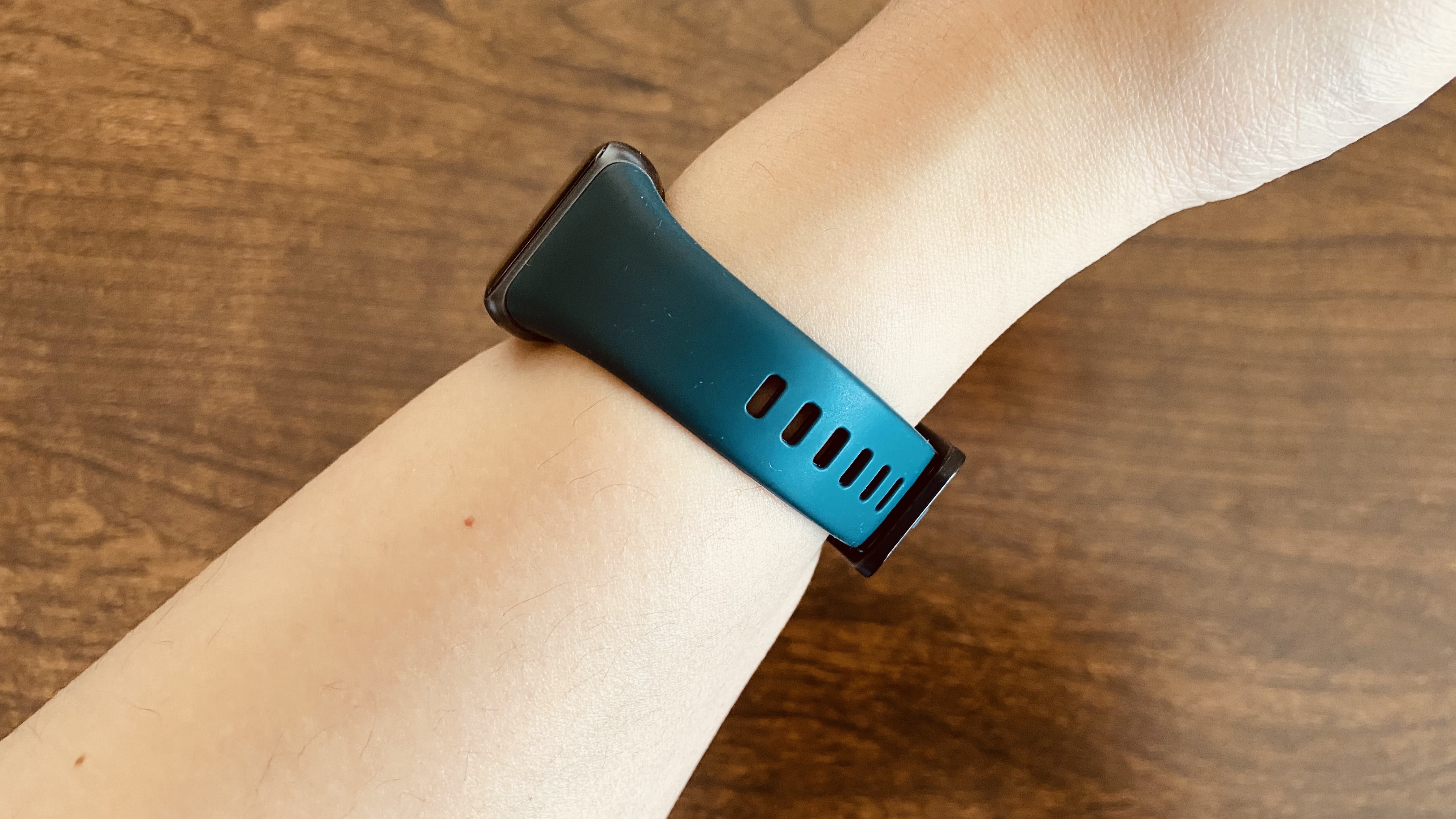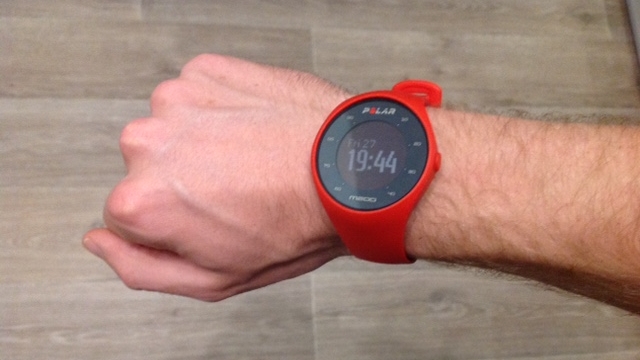Fitness tracker vs smartwatch: which is best for you?
Should you buy a fitness tracker vs a smartwatch?

With so many choices, it can be hard to decide whether a smartwatch or fitness tracker is best for you. It's not a case of cheap bands being a poor copy of their more expensive rivals: different pieces of fitness tracking tech are better suited for different users. These range from bulky, power-hungry versions of the best smartwatches with all the bells and whistles, capable of collecting reams of specialist data, to elegant (and crucially cheap) fitness trackers that help nudge you towards more holistic healthy living.
Whether you’re keeping an eye on your health and fitness to lose weight, train for a specific goal or competition, or just trying to avoid reaching for your smartphone as often, there’s plenty a fitness tracker or smartwatch can do for you – but what’s the difference between the two?
With smartwatches offering a much higher price tag, but doing more overall than fitness trackers, it's a good idea to do your research before committing to one over the other.
Fitness tracker vs Smartwatch: Price
As we’ve alluded to already, fitness trackers are considerably cheaper than smartwatches. While you can pick one up for under $100 in the US, £80 in the UK or AU$150 in Australia, even bands on the cheaper end such as the Huawei Band 7 will track your metrics and help get you on your way to being fitter, healthier, and hopefully, happier.
With that said, trackers with large faces like the Fitbit Versa series tend to move into smartwatch territory in terms of price, if not quite in functionality.
On the other hand, smartwatches can run the gamut. Samsung’s Galaxy Watch 5 can be found for around $279 in the US, £269 in the UK and AU$499 in Australia. Meanwhile, the Apple Watch is the market leader and starts at a similar price range for the cheap SE version (we’d recommend avoiding the even cheaper Series 3 for fear it could be discontinued soon). The top-end Series 7 can cost much more.

Fitness tracker vs Smartwatch: Design
Smartwatches and fitness trackers come in a variety of form factors, but while there are some pieces of smart fitness tech that you strap to your chest, ankle, or even hang as a pendant, the ones we’re looking at can always be found on your wrist.
That means that, as the name would suggest, smartwatches resemble traditional analog timekeeping devices. They offer either rounded-off square designs (like the Apple Watch), or even rounder circular designs (see Samsung, Garmin, or Amazfit’s options), and come in a variety of materials. While Apple no longer sells a solid gold Apple Watch, the product category as a whole is seen as somewhat of a fashion statement as much as it is a fitness tool.
Fitness trackers on the other hand are often svelte in form, to the point where it can be easy to forget when you’re wearing one. Classics like the Fitbit Inspire 2 are thin, offering slimline screens and minimal additional controls except for the touch-based interface.
Across both product types, there are usually removable and swappable straps, meaning users can customize the look and feel of their chosen device with different colors and even different materials. Most modern smartwatches and fitness trackers offer customizable watch faces, too, so they can mimic classic watches.
Fitness tracker vs Smartwatch: Features & Tracking
Here’s where both product categories diverge a fair bit, and that’s perhaps to be expected given the gulf in pricing.
A fitness tracker, as you’d expect from the name, is for tracking physical and (sometimes) mental wellbeing. You’ll need to check the included sensors when researching, but any fitness tracker worth its salt will track your heart rate, steps walked, and calories burned.
This information is beamed to your smartphone via a companion app, but even cheaper trackers are getting things like blood oxygen monitoring and skin temperature readouts that previously were the sole domain of more expensive options.
That democratization of tech hasn’t phased out smartwatches, though. Apple Watch’s watchOS and Google’s Wear OS, as examples, are essentially whole new platforms. This means they can do more, like downloading apps to your watch itself, or streaming music so you don’t need to take your phone for a run.
That’s on top of offering many of the same features you’ll find in a fitness tracker, but all of this power comes at a price (well, aside from the actual price) – battery life.
Apple Watch Series 7 will struggle to last two days without gasping for a charge. On the other hand, the Huawei Band 7, which costs an eighth of the price, will keep chugging for an incredible two weeks.
That’s particularly important if you’re tracking your sleep. While Apple Watch and the like can track sleep, the shorter battery life means you’ll need to charge regularly before bed to be able to use it (although you can add third-party tracking apps). On the other hand, you can leave a fitness tracker on for days.
In short, a smartwatch is much closer to a computer on your wrist, whereas a fitness tracker is much more focused.

Buy a fitness tracker if:
You’re looking to track sleep
Until smartwatch batteries can last longer (or unless you want to buy a second one just for your bedtime routine), a fitness tracker is the best way to track sleep.
You’re new to fitness and working out
The huge price gap between both product categories makes the fitness tracker much more attractive for newcomers.
Buy a smartwatch if:
You want something stylish
It’d be fair to say that smartwatches, on the whole, look a little nicer than the more functional fitness tracker. That makes them an obvious pick for style.
You want to be (a little) more free from your phone
Smartwatches still rely on a phone for the most part, but are a little more autonomous. One with a mobile data plan can stream music, read and send messages, and even take calls without needing your phone handy.
Get daily insight, inspiration and deals in your inbox
Sign up for breaking news, reviews, opinion, top tech deals, and more.

Lloyd Coombes is a freelance tech and fitness writer for TechRadar. He's an expert in all things Apple as well as Computer and Gaming tech, with previous works published on TopTenReviews, Space.com, and Live Science. You'll find him regularly testing the latest MacBook or iPhone, but he spends most of his time writing about video games at Dexerto.